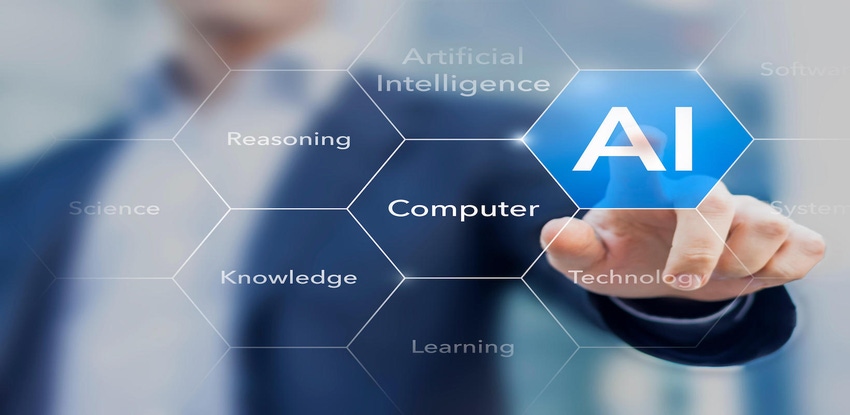Why Your Construction Company Should Use Artificial Intelligence
AI can help contractors “talk” with potential clients, find mistakes in data and write job descriptions. But the technology has significant challenges to consider.

Artificial intelligence in construction is “not future thinking,” said Al Trellis, president of Home Builders Network. “Today it has real-world capability.”
Trellis provided examples of how construction firms are using AI during a recent webinar from Construction Dive, our sister publication. For instance, some AI platforms have a live chat function powered by a digital assistant on their websites, which eliminates the need for an employee to do that task. And the digital assistant can prequalify potential clients.
It makes “the (website) journey more personal, increasing the chances people will buy,” Trellis said.
AI in construction isn’t just for marketing uses, Trellis said. The platforms, some of which support multiple languages, can follow up with potential clients after the original call with a live salesperson.
Also, AI platforms can communicate with many more potential customers than the contractor has time for. “We cannot talk with everyone,” Trellis said.
Other benefits
There are other benefits for construction, said Trellis and panelist Bassam Salem, founder and general manager of AtlasRTX. For example, AI platforms can process a lot more data than people. “From an administration point of view, that is huge,” Trellis said.
AI platforms also can aid with customer service. Trellis said once a contractor’s team writes answers to typical customer questions, a machine can pick out the appropriate pieces from the answers to write a response.
“This saves a lot of time because it doesn’t take an hour and a half to write the letter” to the customer, Trellis said. But, he added, the letter has to be reviewed by a staff member for accuracy before it is sent to the client.
In addition, AI can see patterns and trends in a construction firm’s data that humans might not see. “The machine can help us find the correlations, especially in sales and pricing,” Trellis said. “The machine can help with dynamic pricing. (It) can do that better than you.”
Finally, AI can “iterate as many times as needed; it doesn’t get tired,” he said. “This is where (AI) is so powerful—it’s efficient and speedy.”
For instance, Trellis said if a contractor needs to write job descriptions for all employees, “Four years later, we finally get around to it. With (AI), we can cut that time by 80%.”
Considerations and challenges
Despite AI’s benefits for construction firms, there are challenges.
“If I have biases when I put information in the machine, it will have the same biases I have,” Trellis said.
“If the content is ill-informed, the machine will be ill-informed,” Salem added.
AI also doesn’t have human intuition, Trellis said. He noted that he’s been using the platform ChatGPT, and that he is trying to learn how to best communicate with it “and it is learning how to communicate with me.”
Plus, both speakers said it’s important to fact check all content created with AI because it’s not always accurate and could be plagiarized. “Certain programs may take the exact words, and some will not,” Trellis said.
Salem also noted that AI platforms don’t have to cite the sources they use to create the content, so you can’t trace the data or information.
Plus, AI-generated content could contain offensive language. “You’ve got to be very careful. It is a tool to help you, but you have to check it,” Trellis said.
Trellis suggested contractors try free versions of AI platforms to test their potential for their businesses, adding many offer “hundreds of videos that can help you learn.” “Test it out…so you can do your job better, easier, more productively,” he said.
Despite their enthusiasm for the technology, Trellis and Salem told contractors to be cautious.
“It’s artificial intelligence; it is not real,” Trellis said. “The machine will make things up because it doesn’t know the limits.”
About the Author(s)
You May Also Like




